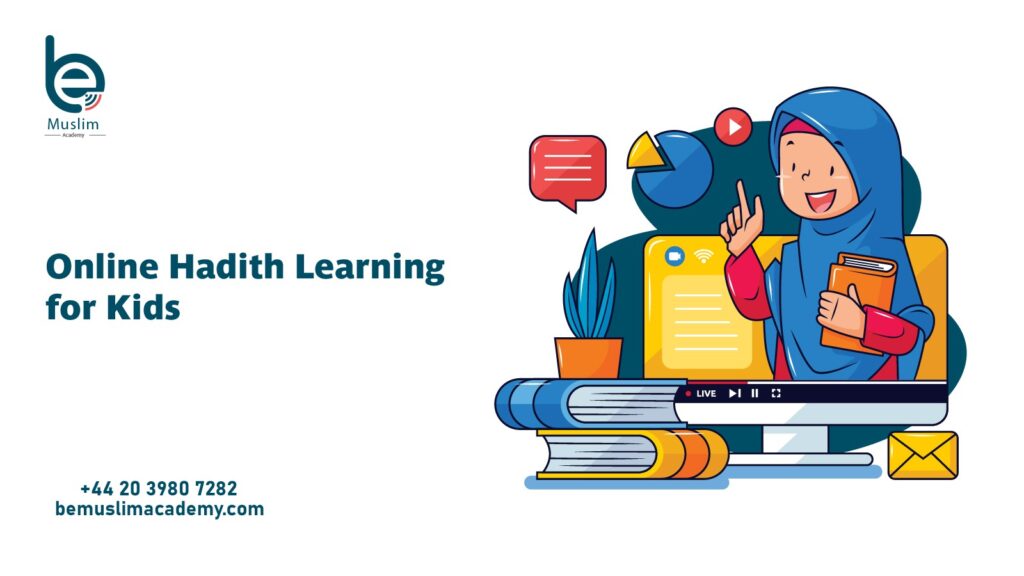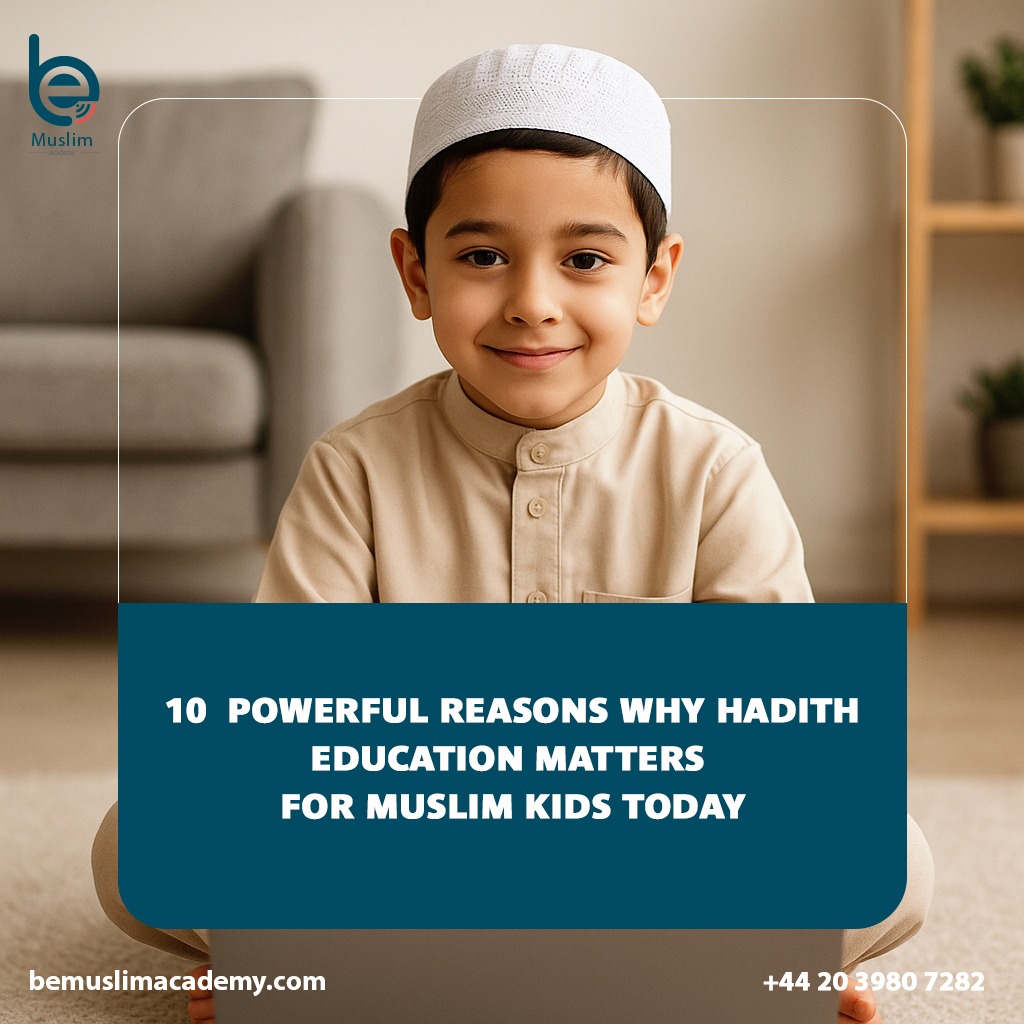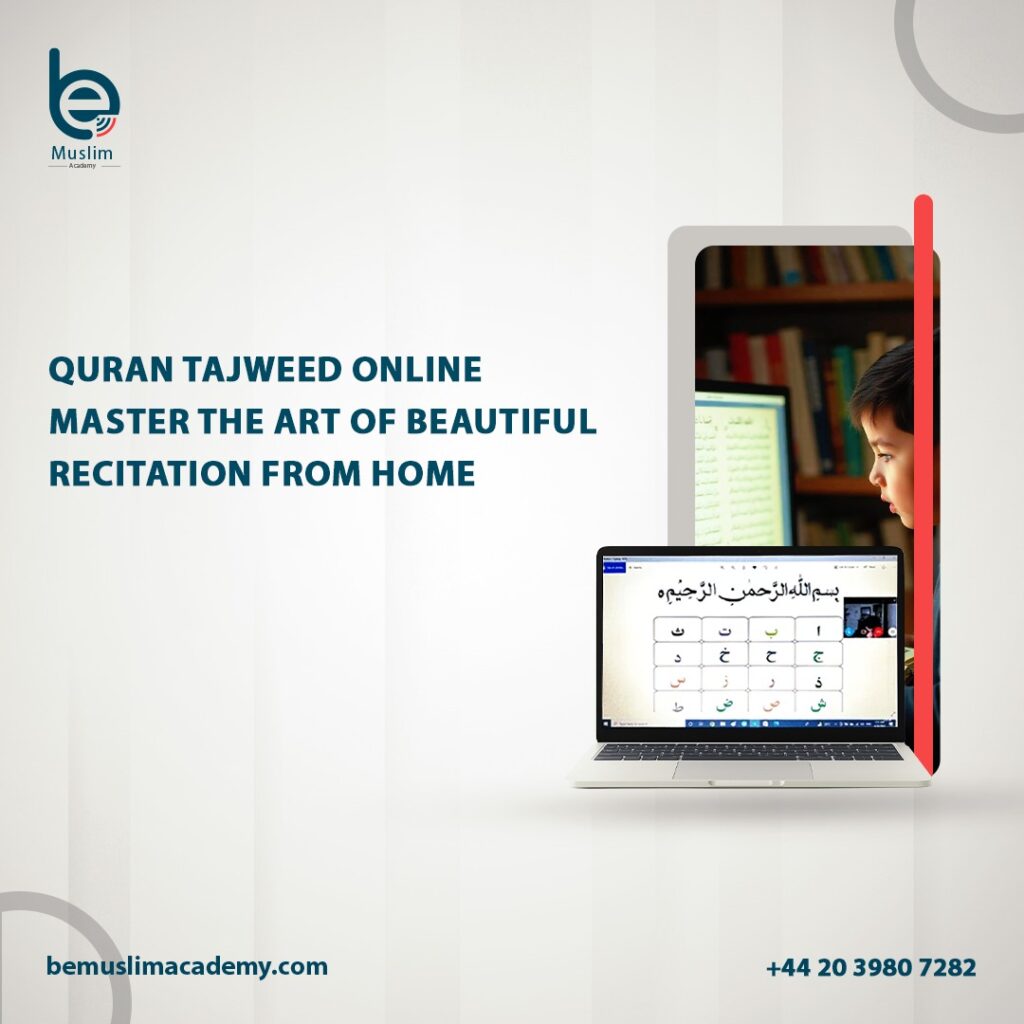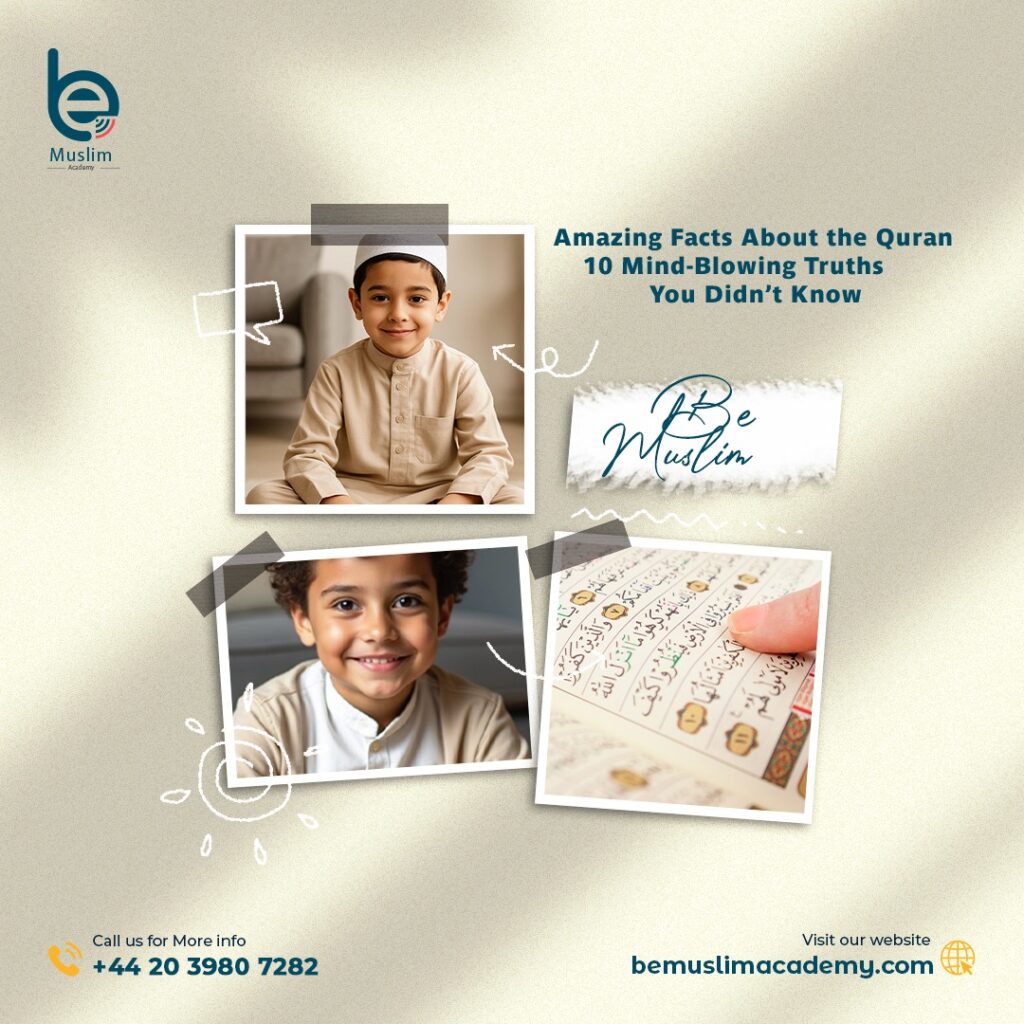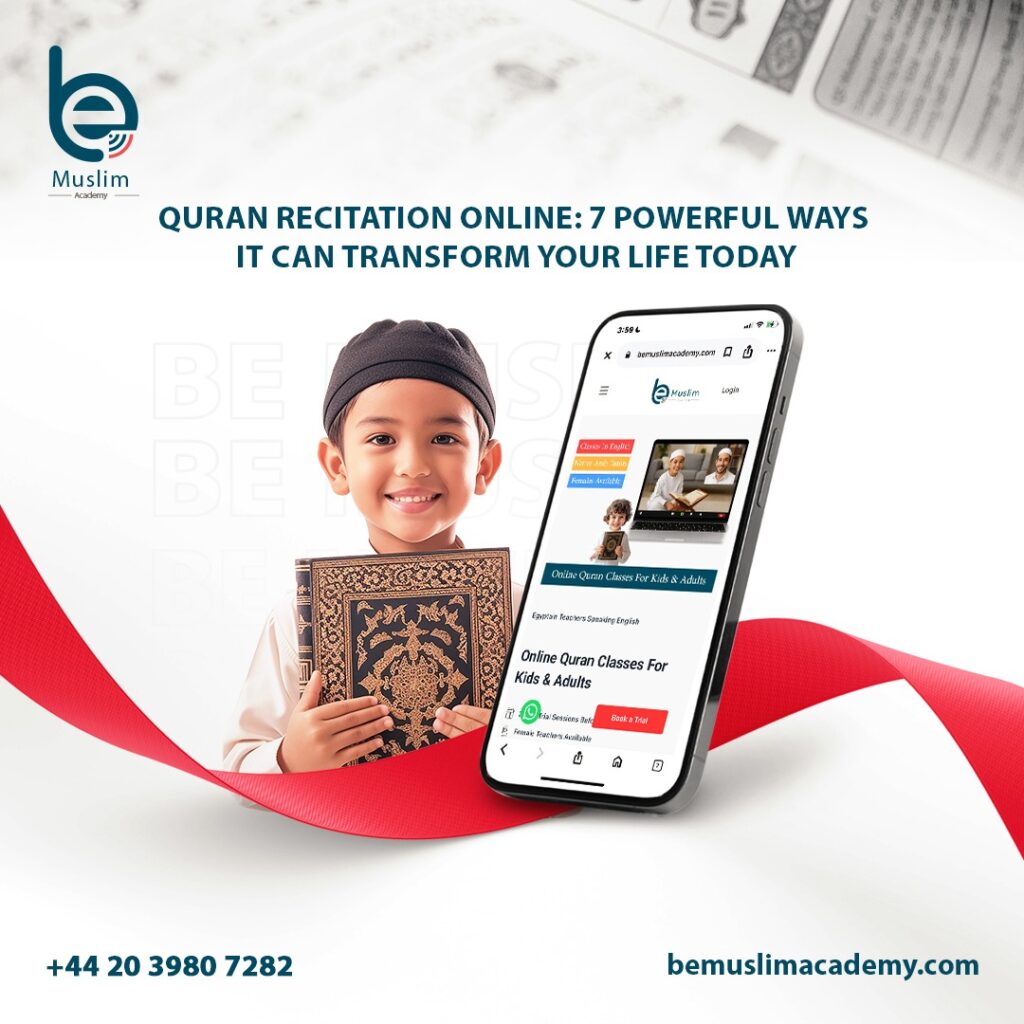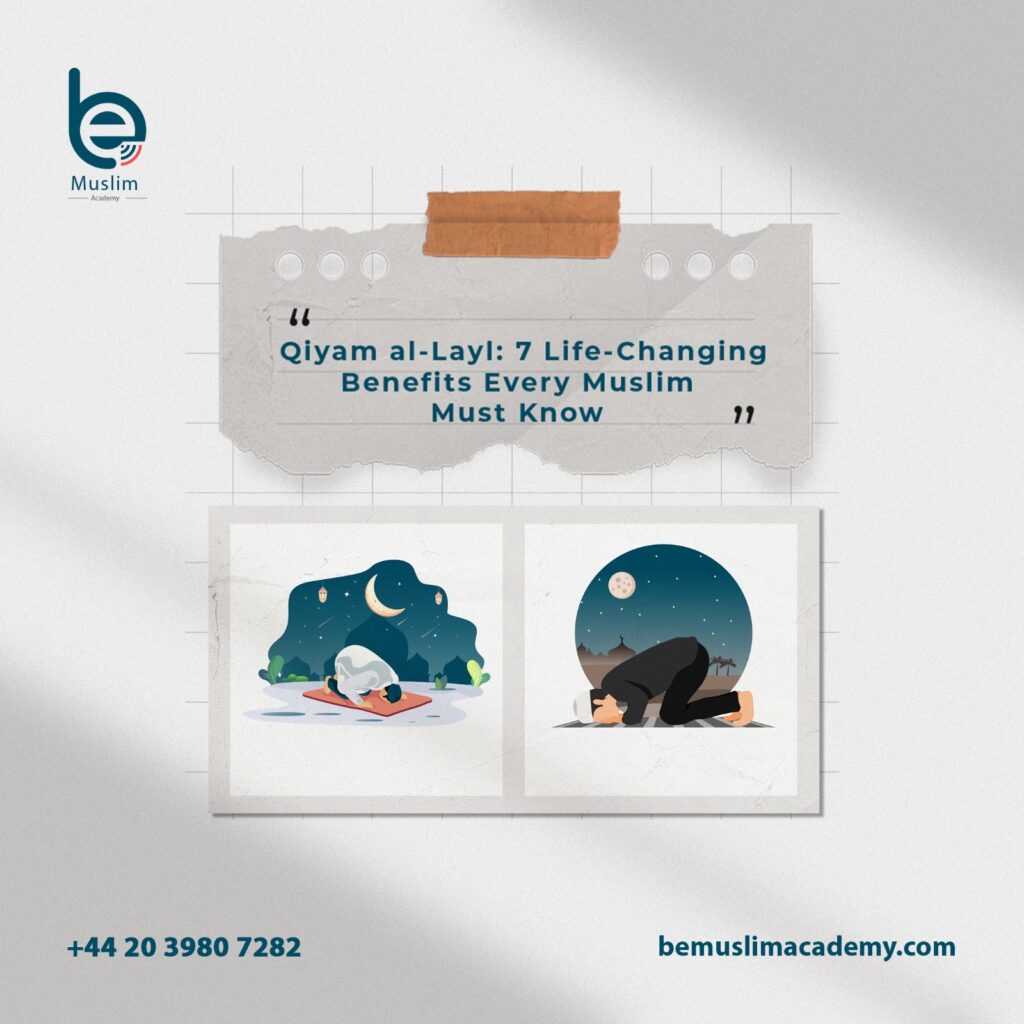Introduction: The Importance of Hadith Education for Kids
Hadith education for kids is more than memorizing Prophet Muhammad’s ﷺ sayings—it’s about nurturing moral character, spiritual awareness, and a lifelong love for Islamic heritage. In a world filled with distractions, cultivating an early connection to prophetic wisdom helps children make grounded, value-driven decisions.
This series dives into 10 powerful reasons why Hadith education for kids still matters today—breaking them into three parts. This first installment explores the spiritual, moral, and emotional foundations that Hadith study builds.
1. Instilling Divine Connection Through Prophetic Guidance
From the earliest ages, children learn about Allah alongside His Messenger ﷺ. Hadith education for kids introduces revered traditions such as:
“Actions are by intentions…” (Bukhari)
By understanding these words, kids internalize sincerity and unconditional love of Allah. When children recite Hadith, they’re reciting not just words, but pearls of divine guidance. This builds a deep spiritual connection from youth.
2. Shaping Moral Character with Prophetic Examples
The Prophet Muhammad ﷺ was the perfect role model. Through Hadith education for kids, they absorb teachings like:
- Respect: “Honor your parents…”
- Kindness: “Whoever does not show mercy…will not be shown mercy.”
- Honesty: “Truth leads to righteousness…”
Learning these simple yet profound messages helps children embody Islamic virtues. They learn to navigate life with integrity, empathy, and responsibility—qualities that traditional schooling often overlooks.
3. Building Emotional Intelligence
Hadith education for kids includes understanding feelings and relationships, such as:
- “The strong person is not he who overcomes people…” (Bukhari)
- “Smiling is charity…” (Tirmidhi)
These narrations shape emotional maturity. Children see that knowing their emotions and using kindness is valued in Islam. They learn self-control, patience, and conflict resolution early on.
4. Positive Identity and Sense of Belonging
In multi-cultural societies like the UK, Muslim children may struggle with identity. Hadith education for kids helps them see themselves as part of a global Ummah, connecting to a legacy spanning continents and centuries.
Encouraging children to memorize and reflect upon Hadith fosters strong self-esteem and Islamic identity. They internalize: “I belong. I’m proud of my heritage.”
5. Developing Critical Thinking Through Discussion
Hadith education for kids isn’t rote learning—it’s also guided discussion.
For example, asking questions such as:
- “Why is honesty important?”
- “How can we show mercy today?”
These conversations spark reflection, shaping ethical reasoning and decision-making skills. Parents and teachers guide them gently through moral dilemmas through prophetic wisdom.
6. Daily Relevance and Practical Application
Prophetic guidance is timeless. Teaching children Hadith like:
- “The best of you are those who learn…” (Bukhari)
- “None of you truly believes until…” (Bukhari)
These aren’t historical anecdotes—they’re living principles. Through Hadith education for kids, everyday actions—like schoolwork, sibling relationships, and prayer—become conscious expressions of faith.
7. Strengthening Family Bonds Through Shared Learning
Hadith education for kids transforms into shared family rituals—like reading and discussing a Hadith daily. This strengthens conversation, faith, and emotional closeness.
When families come together to reflect on prophetic teachings, it builds intergenerational bonds rooted in Islamic values.
8. Cultivating Long-Term Spiritual Resilience
Early exposure to prophetic wisdom helps children handle life’s challenges proactively. Teachings about patience, trust, and perseverance come to their aid in times of stress or peer pressure. Hadith education for kids sows seeds of inner resilience and hope.
9. Integrating Faith and Ethics in Everyday Life
Unlike abstract doctrine, Hadith education for kids is highly practical:
- “Part of your fasting is when you avoid arguments…” (Ibn Majah)
- “If someone wrongs you, make two Rak’ahs and seek Allah’s help.” (Abu Dawood)
Children learn to integrate spiritual habits into daily life, reinforcing ethics at every step.
10. Connecting with a Global Islamic Culture
Hadith education for kids builds bridges across generations and geographies. When children study Hadith, they connect spiritually with Muslims worldwide—whether in Makkah or Manchester. It fosters global empathy and Ummah awareness.
Closing Thoughts for Part 1
We’ve explored how Hadith education for kids strengthens spirituality, character, emotional maturity, identity, and more. By planting prophetic wisdom early, you guide children toward lifelong values, faith, and resilience.
👉 In Part 2, we will delve into how to effectively implement Hadith education in your home, choosing quality teaching methods, and ensuring consistent engagement.
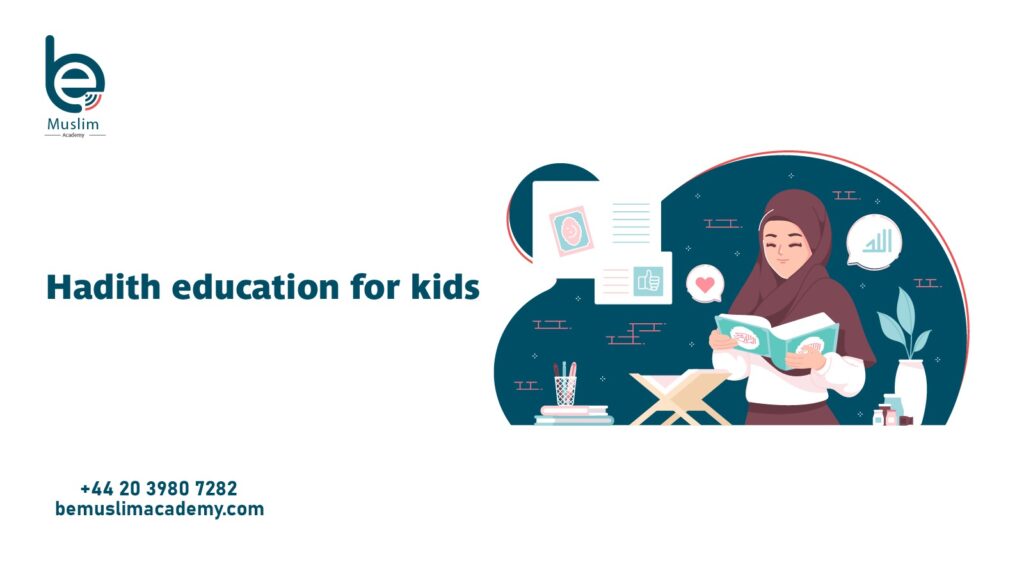
Expanding the Impact of Hadith on Family, Behavior, and Faith
6. Reinforces Islamic Etiquette and Good Manners at Home
Hadith education for kids doesn’t just shape how they act in public — it deeply influences their behavior at home. Parents often struggle with children’s discipline, respect, and social conduct. But when manners are taught through the Prophet’s ﷺ own words and actions, they resonate more meaningfully with children.
For example:
“He is not one of us who does not show mercy to our young ones and respect to our elders.” (Tirmidhi)
Through Hadith like this, children learn the importance of respecting parents, showing kindness to siblings, and speaking gently. The result is a more peaceful, compassionate home environment rooted in prophetic values.
When children internalize prophetic adab (manners), the family becomes a place of mercy, not just rules. Parents also benefit from hearing their children remind each other with sayings of the Prophet ﷺ, reinforcing what they model and teach.
7. Shapes Positive Social Behavior and Empathy
Hadith education for kids plays a powerful role in developing social intelligence and emotional empathy. Many Hadiths emphasize compassion, community, and fairness — values that help children navigate friendships and social settings.
Hadiths such as:
“None of you truly believes until he loves for his brother what he loves for himself.” (Bukhari & Muslim)
help children understand empathy, fairness, and generosity. This kind of learning goes beyond theory. It inspires real-life action — from sharing toys to standing up against bullying, or showing concern for a classmate.
In today’s individualistic culture, Hadith education for kids reinforces communal values and builds character rooted in care for others. It transforms the child from a passive learner into an active ambassador of kindness and justice.
8. Encourages Critical Thinking and Personal Reflection
Contrary to the assumption that Islamic education is rote memorization, Hadith education for kids can actually nurture deep thinking.
The Prophet ﷺ often asked questions, encouraged reasoning, and gave analogies to make his message understood. Many Hadiths include moral dilemmas, storytelling, or reflective moments — all of which engage the child’s mind.
For instance, Hadiths that mention the intentions behind actions:
“Actions are judged by intentions…” (Bukhari & Muslim)
prompt children to ask:
- Why am I doing this?
- Who benefits from my action?
- How would the Prophet respond in this situation?
This reflection builds Islamic mindfulness (taqwa) from a young age. It also prepares children to make good choices as they grow — not just because they were told to, but because they understand why.
9. Strengthens the Parent-Child Islamic Bond
When parents and children learn Hadith together, the benefits go far beyond education — it becomes a shared spiritual journey.
Hadith education for kids opens up conversations about values, real-life decisions, and Islamic rulings in a safe, trusted space. A Hadith about honesty can turn into a discussion about a recent lie. A Hadith about kindness can become a bedtime story that leads to hugs and du’as.
This bonding:
- Builds spiritual trust
- Encourages open communication
- Allows parents to lead by prophetic example
Many parents find that incorporating short Hadiths in daily routines — after meals, during car rides, or before sleep — not only strengthens their child’s Islamic knowledge but also brings more barakah (blessing) into their relationship.
10. Supports Long-Term Faith Retention and Resilience
Perhaps the most far-reaching benefit of Hadith education for kids is its ability to anchor their faith through life’s challenges.
Today’s youth are exposed to ideologies, doubts, and temptations that can shake their belief system. But a child who is grounded in Hadiths — who knows that the Prophet ﷺ faced hardship with patience, that forgiveness is better than revenge, that Allah loves those who repent — is spiritually armored.
Hadith education becomes:
- A source of comfort during trials
- A moral compass in confusion
- A reminder of divine love and mercy
Children raised with Hadiths are more likely to maintain their faith through adolescence, college, and adulthood. These teachings become the whispers of guidance in their hearts during crucial life decisions.
Summary of Part 2
In Part 1, we explored how Hadith education for kids builds character, encourages Sunnah practice, and fosters a love for the Prophet ﷺ. Now, we’ve seen how it strengthens family life, emotional intelligence, reflective thinking, and long-term faith.
As we continue this journey in Part 3, we’ll explore practical tips for parents and educators to implement Hadith education effectively — and how online platforms like Be Muslim Academy can make this easier than ever.
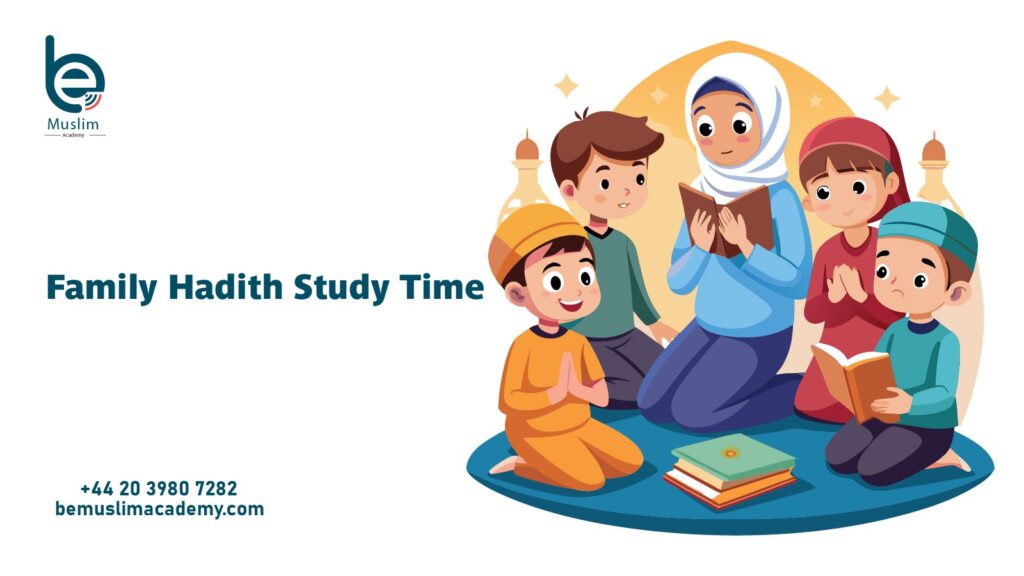
Part 3: Practical Implementation & Global Access to Hadith Education
Making Hadith Education for Kids Accessible in Modern Times
With everything we’ve covered in Parts 1 and 2 — from character development to deep spiritual resilience — the natural next step is: how can we implement Hadith education for kids in a practical, sustainable way?
Let’s dive into the tools, environments, and resources that make it easy for parents, schools, and communities to integrate Hadith learning into children’s lives.
1. Start with Short, Actionable Hadiths
Children grasp concepts better when they’re clear and practical. So, start with simple Hadiths that are easy to understand and apply. A few examples:
- “Cleanliness is part of faith.” (Muslim)
- “The strong person is not the one who can overpower others, but the one who controls himself when angry.” (Bukhari)
- “Whoever does not show mercy will not be shown mercy.” (Bukhari & Muslim)
Each Hadith can lead to a discussion, a story, a drawing, or a real-life example. When linked to everyday events — like brushing teeth, controlling anger, or helping others — children are more likely to internalize and remember them.
📝 Tip: Turn it into a challenge — “Let’s act on this Hadith today!”
This builds both habit and motivation in a fun, engaging way.
2. Use Visual and Interactive Learning Methods
Hadith education for kids doesn’t need to be lecture-style or dry. It can be creative, colorful, and engaging, using:
- Animated videos illustrating Hadith stories
- Interactive apps and quizzes
- Coloring sheets of the Prophet’s sayings
- Hadith of the week boards in homes or classrooms
Studies show children retain more when they learn through visual and kinesthetic methods. Combining a Hadith with a visual activity — like drawing a scene or acting it out — brings it to life.
Example:
If teaching “The believer is like a date palm,” (Bukhari), have kids draw a palm tree and write how Muslims should be strong but gentle — just like the tree.
3. Build Routines Around Hadith Learning
One of the most effective ways to implement Hadith education for kids is to build it into daily routines:
- One Hadith after Fajr prayer
- A “Prophet’s saying of the day” during breakfast
- A weekly family Hadith circle on Sundays
- Memorizing one Hadith a week with a reward system
This doesn’t require extra time — just a little intentional planning.
Over time, kids develop a strong Hadith vocabulary, and the Prophet’s ﷺ words become a natural part of their moral compass.
4. Encourage Reflection and Application
Don’t just memorize the Hadith — reflect on it. Ask questions:
- What does this Hadith mean in your own words?
- Can you think of a time you did this — or didn’t?
- How can we act on this Hadith today?
This critical thinking builds depth. It also prepares children to apply Hadiths throughout life, in school, friendships, and family.
You can even create a Hadith journal where the child:
- Writes the Hadith in Arabic and English
- Draws a picture of its meaning
- Notes one action they’ll take based on it
5. Enroll in Online Hadith Courses for Kids
With today’s technology, Hadith education for kids is no longer limited to madrassahs or physical classrooms.
Be Muslim Academy, for example, offers:
- Live, one-on-one Hadith classes for kids
- Qualified, child-friendly teachers
- Structured curriculum aligned with age and level
- Classes that blend Hadith with practical Islamic knowledge
Many platforms also provide:
- Certificates of completion
- Progress tracking for parents
- Revision sheets and lesson recordings
Online Hadith learning offers flexibility — ideal for busy families, homeschoolers, or those living in areas without access to Islamic schools.
6. Collaborate with Teachers and Islamic Educators
If your child is enrolled in an Islamic school or weekend program, collaborate with teachers to align home and school Hadith learning.
- Ask what Hadiths are being taught this week.
- Reinforce them at home with stories, activities, or family discussions.
- Share ideas or create a reward chart together.
The synergy between parents and teachers strengthens learning outcomes and shows kids that Islamic knowledge is important in every space.
7. Address Questions and Misunderstandings Early
As children grow, they may question or misunderstand Hadiths — especially in the context of modern values.
It’s vital that adults are prepared to:
- Clarify confusing Hadiths in age-appropriate ways
- Consult scholars or teachers when unsure
- Explain cultural versus religious practices
- Emphasize that Hadiths must be understood through scholars and context
Normalizing questions and open dialogue strengthens children’s faith and prevents future doubts. It makes Islam feel accessible, not authoritarian.
8. Combine Hadith with Quran Learning
Many families focus only on Quran memorization — which is essential — but pairing it with Hadith education for kids creates a balanced, full-spectrum Islamic understanding.
While the Quran provides divine guidance, Hadith shows how to implement it through the Prophet’s ﷺ words and actions.
- Quran: “And speak to people good words…” (Surah Al-Baqarah)
- Hadith: “He who believes in Allah and the Last Day, let him speak good or remain silent.” (Bukhari & Muslim)
This layered learning reinforces concepts, improves application, and helps children see Islam as a complete way of life.
Final Reflections: What the Future Holds
In our fast-paced, globalized world, the need for Hadith education for kids is stronger than ever. It:
- Builds moral resilience
- Anchors children in prophetic love and guidance
- Equips them to be ethical leaders in the Ummah
- Brings families closer through shared learning
By starting early, being consistent, and using modern tools like online classes and visual learning, every parent can give their child a gift more valuable than gold — a relationship with the Prophet Muhammad ﷺ.
Action Steps for Parents and Educators
✅ Choose 5 short Hadiths to teach this month
✅ Create a Hadith wall at home or in class
✅ Join an online Hadith course through a platform like Be Muslim Academy
✅ Encourage kids to act on Hadith, not just memorize
✅ Reflect, reward, and repeat!
